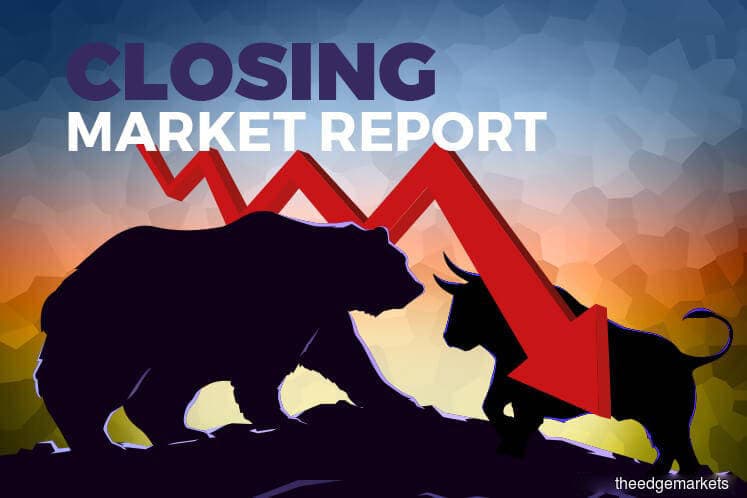
KUALA LUMPUR (Oct 19): Gains in Asian markets failed to lift the FBM KLCI today, closing 5.87 points or 0.34% lower at 1,732.14, marking its second consecutive day of decline.
Earlier in the day, the benchmark index declined as much as 1.14% to touch an intraday low of 1,718.13, before paring losses to hover around the 1,730 mark. Week-on-week, the index was 0.08% lower compared to its closing of 1,730.74 on Oct 12.
JF Apex Securities said the local index continued to be under pressure following the lower close by US and European markets overnight, adding that it could see further decline.
"Following the bearish performance in the US and Europe, the KLCI remains under pressure and could decline towards the support of 1,700 points," it said in a note.
Meanwhile, Kenanga Investment Research said the outlook remains bearish for the KLCI, following the emergence of a head-and-shoulders pattern but does not discount the possibility of a rebound in the short term, given improving signals from key momentum indicators.
"Key levels of resistance to look at are 1,760 and 1,790. Conversely, lower support levels can be identified at 1,700 and 1,660," said Kenanga.
Bursa Malaysia saw a total of 2.41 billion shares worth RM2.3 billion exchanged today. Market breadth was negative as 513 decliners outnumbered 242 gainers, while 442 counters were unchanged.
Leading the decliners were British American Tobacco (M) Bhd, KESM Industries Bhd and Carlsberg Brewery Malaysia Bhd, while Malaysian Pacific Industries Bhd, BLD Plantation Bhd and Hap Seng Consolidated Bhd were among the top gainers.
Elsewhere in Asia, China's Shanghai Composite Index gained 2.58%, Hong Kong's Hang Seng Index rose 0.42% and South Korea's Kospi increased 0.37%. Meanwhile, Japan's Nikkei 225 closed 0.56% lower.
Reuters said Asian stocks clawed back losses today as China's efforts to bolster investor confidence helped its share markets rally, although data showing the world's second-largest economy growing at the slowest pace since 2009 capped broader gains.